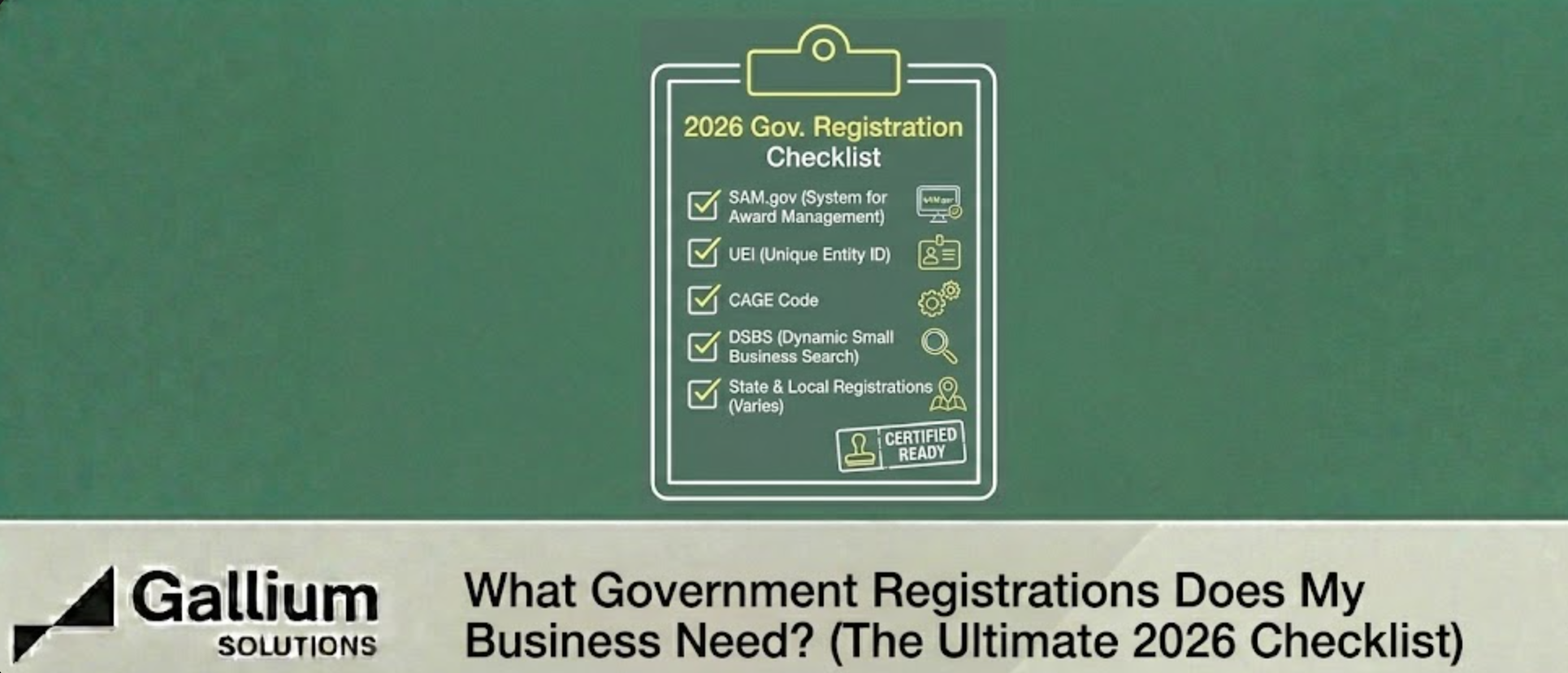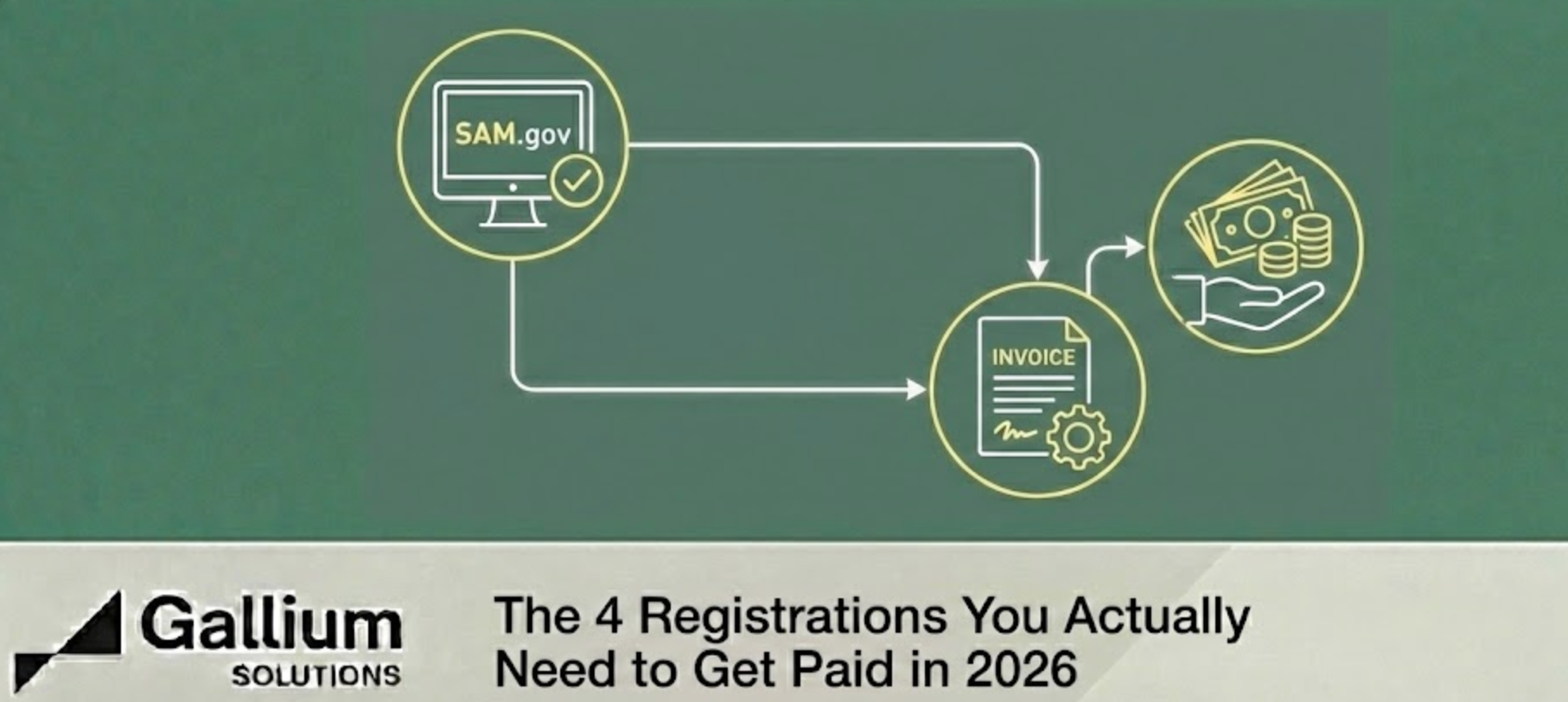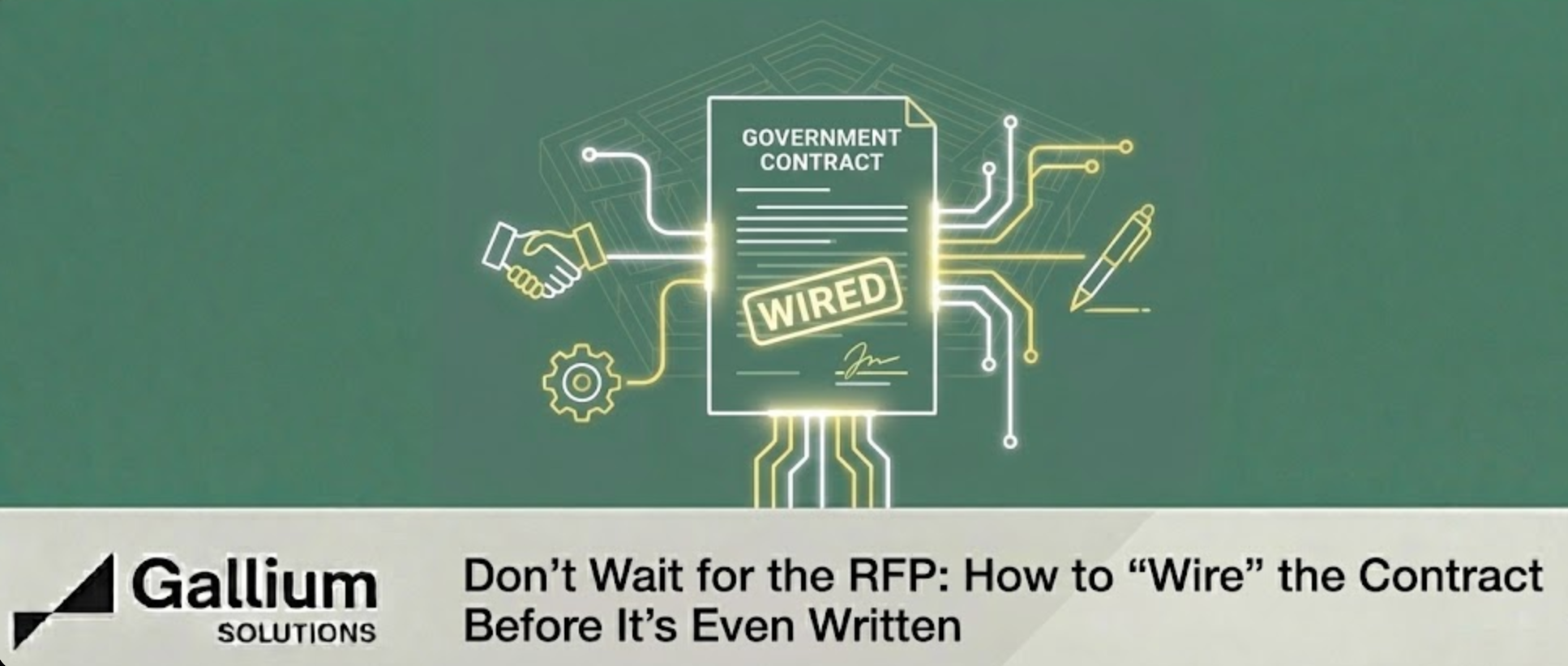What Is a GSA Schedule (And How To Get On One)
.png)
If you’ve been trying to sell your products or services to the federal government, you've likely heard about GSA Schedules.
These powerful contract vehicles streamline the government sales process, but what exactly do they offer, and how can your startup qualify for one?
What is a GSA Schedule?
A GSA Schedule (also called a Federal Supply Schedule or Multiple Award Schedule) gives you a long-term government-wide contract that speeds up the procurement process for federal agencies. GSA stands for General Services Administration, the federal agency that manages government purchases and property.
Think of a GSA Schedule as your pre-approved vendor agreement with the federal government.
Once you secure a GSA Schedule contract, government buyers can purchase directly from you without conducting a full competitive bidding process for each transaction.
The government tells agencies, "We've vetted this company and negotiated fair pricing so that you can buy from them confidently."
How GSA Schedule Contracts Work
The GSA runs the Multiple Award Schedule (MAS) system, consolidating formerly separate schedules into a single program with categories and subcategories.
You apply for and receive a GSA Schedule contract for specific categories of your products or services. GSA lists your approved offerings in GSA Advantage, the government's online shopping platform. Federal agencies browse GSA Advantage or contact you directly to place orders quickly using simplified acquisition procedures. You fulfill the orders according to your contract terms.
Getting "on Schedule" enables agencies to bypass lengthy procurement processes and buy directly from you (within certain dollar thresholds).
You gain access to a massive marketplace of potential customers, while agencies save time and resources.
Popular GSA Schedules
While GSA consolidated its schedules into the single MAS program, many buyers still refer to the legacy schedule numbers when discussing specific categories.
You'll frequently encounter:
GSA Schedule 70 (Information Technology) – Now part of the "Information Technology" category under MAS, this schedule dominates as the largest and most active option. It covers your IT products, software, and services, including cloud computing, cybersecurity, and telecommunications.
GSA Schedule 84 (Security and Protection) – Now incorporated into the "Security and Protection" category under MAS, this schedule covers your security equipment, systems, and services, including physical access control, video surveillance, and facility management systems.
Other major categories include Professional Services, Office Management, Industrial Products and Services, and many more specialized areas where your startup might fit.
Step-by-Step: How To Get on a GSA Schedule
Securing a GSA Schedule placement requires preparation, attention to detail, and patience.
Try to break down the process into these manageable steps:
1. Determine Your Eligibility
Before applying, verify that your startup meets these basic requirements:
- At least two years in business
- Financial stability with positive cash flow
- Products/services that align with a GSA Schedule category
- Demonstrated past performance with either government or commercial clients
- Products/services that comply with the Trade Agreements Act (TAA)
- System for Award Management (SAM) registration
2. Complete Required Registrations
You must obtain a DUNS Number (Dun & Bradstreet), an active SAM.gov registration, a Digital Certificate for electronic signatures, and an SBA profile (if you qualify as a small business).
3. Choose the Right Schedule and Special Item Numbers (SINs)
Review the MAS categories and identify which ones match your offerings. Select specific Special Item Numbers (SINs) within each category corresponding to your products or services.
4. Prepare Your Documentation
Gather supporting materials, including financial statements, commercial sales practices information, corporate experience documentation, past performance references, product descriptions, price lists, and relevant certifications.
5. Complete and Submit Your Offer
Use the eOffer system to fill out required forms, upload documentation, propose your GSA pricing (typically discounted from commercial prices), and submit your offer electronically.
6. Respond to Clarification Requests
GSA will likely ask questions about your offer. Respond promptly and thoroughly to maintain momentum.
7. Negotiate Terms and Pricing
With your documentation in order, you'll negotiate with a GSA Contracting Officer to finalize contract terms, including pricing, delivery terms, warranty provisions, and environmental considerations.
8. Receive Your GSA Schedule Contract
After successful negotiations, you'll receive your GSA Schedule contract award, typically valid for a five-year base period with three five-year option periods (potentially 20 years total).
Common Pitfalls and How To Avoid Them
Many startups stumble during the GSA Schedule application process.
Watch for these frequent mistakes:
Underestimating the Time Investment
The application process typically takes 4-7 months from submission to award. Plan accordingly and assign dedicated resources to manage your application.
Insufficient Documentation
Incomplete or disorganized documentation delays applications more than any other factor. Develop a detailed checklist of required documents and verify completeness before submission.
Unrealistic Pricing
Your proposed prices must compete effectively and align with your commercial sales practices. Prepare to offer the government pricing equal to or better than what you offer your most favored customers.
Choosing the Wrong SINs
Selecting inappropriate Special Item Numbers can result in rejection or limit what you can sell — research thoroughly before committing.
Misunderstanding Compliance Requirements
As a GSA Schedule holder, you must comply with numerous regulations, including the Trade Agreements Act, the Service Contract Act, and regular sales reporting. Learn these obligations before applying.
The Role of GSA Schedule Consultants
Given the complexity of the process, you can work with GSA Schedule consultants.
A good consultant identifies the appropriate schedule and SINs for your offerings, prepares compliant documentation, guides your pricing strategy, troubleshoots issues during your application, and provides post-award compliance support.
When selecting a consultant, look for specific experience in your industry, verifiable success stories, transparent pricing, ethical practices, and ongoing support capabilities. Avoid consultants who guarantee timelines, promise unrealistic sales volumes, or lack verifiable past performance.
Next Steps After Award
Receiving your GSA Schedule contract starts your journey. Maximize its value by marketing your GSA Schedule status on your website and materials, training your team on GSA procedures and compliance requirements, maintaining compliance through regular reporting, and building relationships with contracting officers and program managers at agencies that need your products.
Your GSA Schedule opens doors, but relationships drive sales.
A GSA Schedule contract powerfully grows your federal business by providing streamlined access to billions in government spending. While the application demands significant effort, the potential return justifies the investment for many startups.
Ready to grow your federal sales with a GSA Schedule? Gallium Solutions helps startups navigate every step of the process.
Contact us today to get started!












